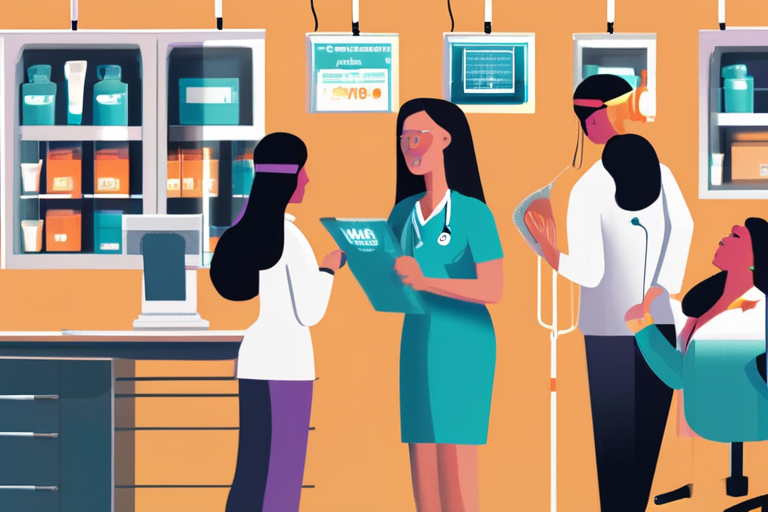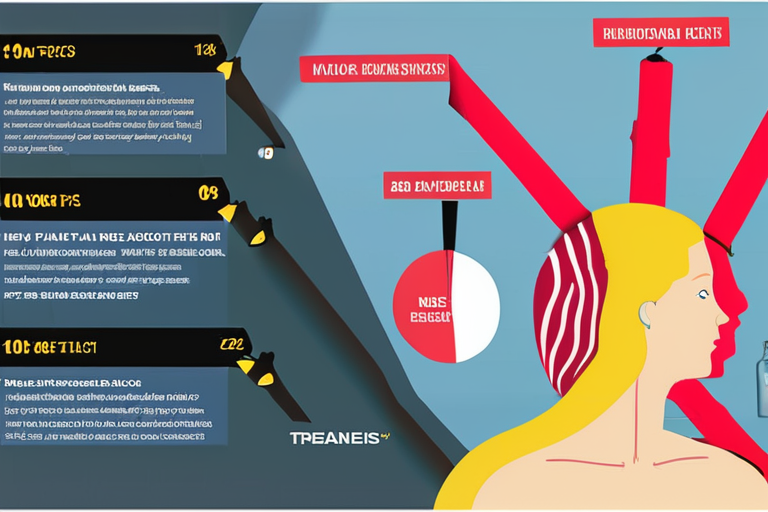Everything is Perimenopause Now – But What if It's Not?
In recent years, the term "perimenopause" has become a cultural touchstone, symbolizing the inevitable decline of female fertility. However, for many women like Stephanie, 47, who lives in California, the symptoms that are commonly attributed to perimenopause may not be what they seem.
Stephanie's story is not unique. She experienced heavier and longer periods, exhaustion, and hip pain in her mid-40s, which she initially attributed to perimenopause. Her doctor suggested a low dose of estrogen as treatment, but the symptoms persisted. "I was eating 1400 calories a day and working hard, and I couldn't lose my perimenopause belly," Stephanie said. "But everything I read said these things were normal."
A growing number of women are finding themselves in similar situations, where their symptoms are misdiagnosed or mistreated as perimenopause. Dr. Rachel Bond, an obstetrician-gynecologist at NewYork-Presbyterian Hospital, notes that the same symptoms can be indicative of other conditions, such as polycystic ovary syndrome (PCOS), endometriosis, or even thyroid disorders.
"The problem is that many women are being told that their symptoms are just perimenopause, and they're not being given a proper diagnosis," Dr. Bond said. "This can lead to unnecessary treatment with estrogen, which may not address the underlying issue."
The cultural phenomenon of perimenopause has been fueled by social media and online forums, where women share their experiences and seek advice from one another. However, this collective narrative can sometimes overshadow individual circumstances.
"We need to be careful not to pathologize midlife in women," said Dr. Louise Newson, a UK-based gynecologist who specializes in menopause care. "Perimenopause is a real condition, but it's not the only explanation for symptoms that women are experiencing."
The consequences of misdiagnosis can be far-reaching. Women may undergo unnecessary treatment, which can have serious side effects or even exacerbate their symptoms. Moreover, the lack of attention to other potential conditions can perpetuate health disparities and neglect the unique experiences of diverse populations.
As the conversation around perimenopause continues to evolve, it's essential to acknowledge that not every woman's experience is the same. By listening to individual stories and seeking a more nuanced understanding of midlife symptoms, we may uncover new insights into women's health and well-being.
In response to growing concerns about misdiagnosis, some healthcare providers are adopting a more holistic approach to care. They're incorporating alternative therapies, such as acupuncture or mindfulness practices, alongside conventional treatments.
The American College of Obstetricians and Gynecologists (ACOG) has also issued guidelines recommending that healthcare providers take a comprehensive approach to diagnosing perimenopause symptoms. This includes considering other potential causes, such as hormonal imbalances or underlying medical conditions.
As the cultural narrative around perimenopause continues to shift, it's crucial to prioritize individualized care and listen to women's stories. By doing so, we may uncover new paths forward for women navigating midlife, and ensure that their unique experiences are acknowledged and respected.
Background: Perimenopause is a natural transition in life when hormone levels fluctuate, leading to various symptoms such as hot flashes, mood swings, and changes in menstrual cycles. However, not all symptoms can be attributed to perimenopause, and other conditions may require attention.
Additional perspectives:
Dr. Stephanie Faubion, the director of the Mayo Clinic's Women's Health Clinic, notes that women should be aware of their family medical history and discuss it with their healthcare provider.
The National Institute on Aging recommends that women talk to their healthcare providers about their symptoms and ask for a comprehensive evaluation.
Current status: As the conversation around perimenopause continues to evolve, healthcare providers are adopting more holistic approaches to care. Women's stories and experiences are being amplified, and attention is being drawn to the importance of individualized diagnosis and treatment.
Next developments: The ACOG guidelines on diagnosing perimenopause symptoms will be updated in 2024, reflecting a growing emphasis on comprehensive care. Researchers are also exploring new treatments and therapies for women experiencing midlife symptoms.
*Reporting by Newscientist.*



 Hoppi
Hoppi

 Hoppi
Hoppi

 Hoppi
Hoppi

 Hoppi
Hoppi

 Hoppi
Hoppi

 Hoppi
Hoppi











